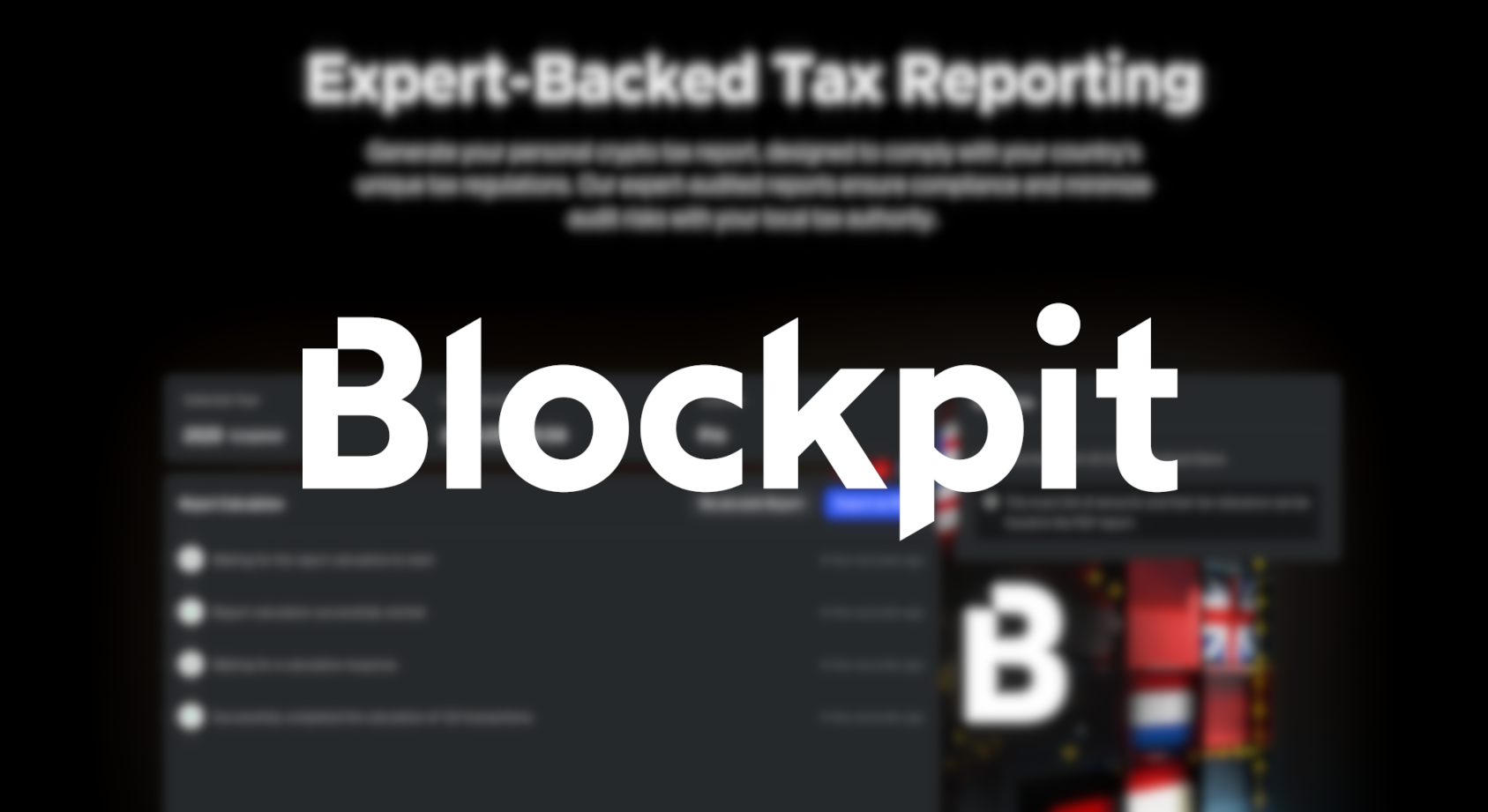
NFTs have turned from a niche product for hardcore cryptocurrency enthusiasts to a lucrative market with hundreds of millions of dollars changing hands on a daily basis. But where there’s profits to be made, there’s usually also taxes to be paid, and this also holds true for NFTs in most jurisdictions around the world.
Most of the best crypto tax software platforms have also integrated support for NFTs. In this article, we’ll showcase the best NFT tax software that you can use to calculate and file the taxes you owe from trading and investing in NFTs.
The best NFT tax software in 2024
Now, let’s get right into our list of the best NFT tax software in 2024. We’ve made sure to highlight industry-leading solutions, but please keep in mind that most of these services require a paid subscription before you can access their most useful features.
| Free tier available? | Cheapest paid tier | Country-specific tax reports* | Sample reports | |
|---|---|---|---|---|
| TokenTax | No | Basic ($65 / year, up to 100 transactions, only Coinbase and Coinbase Pro) |
US, Canada, Australia | Sample reports |
| Blockpit | Yes | Lite ($49 / year, up to 50 transactions) |
US, UK, Germany, France, Spain, Belgium, Switzerland, Austria |
Sample reports |
| Koinly | Yes | Newbie ($49 / year, up to 100 transactions) |
US, Australia, UK, Canada, Sweden, France, Finland, Denmark, Norway, Switzerland |
Sample reports |
| CoinTracker | Yes | Base ($59 / year, up to 100 transactions) |
US, Canada, UK, Australia | Not available |
| CoinLedger | Yes | Hobbyist ($49 / year, up to 100 transactions) |
US, UK, Canada, Australia, New Zealand, Japan, Austria, Switzerland, Denmark, Spain, France |
Sample reports |
*The capital gain/loss reports generated by crypto tax software platforms can be adapted and used to file taxes in many different countries.
1. TokenTax
The TokenTax platform is a leading solution in crypto tax software, offering extensive compatibility with various cryptocurrency exchanges, wallets, and digital assets.
Its capability to generate crypto profit and loss reports can be customized to meet the tax regulations of different countries, positioning TokenTax as a suitable tool for crypto investors globally.
The platform’s Basic plan, priced at $65 annually, caters specifically to users of the Coinbase and Coinbase Pro exchanges. For traders active across multiple exchanges, TokenTax offers its Premium plan, which supports up to 5,000 transactions and is priced at $199.
TokenTax can also help users with calculating and reporting their NFT taxes. Depending on your membership tier, you can also access a tax loss harvesting dashboard, which will help you pay less in taxes if you are holding NFTs or other crypto assets at a loss.
2. Blockpit

The Blockpit platform, which offers both a crypto portfolio tracker and a tax calculator, is known for its user-friendly interface and broad support for cryptocurrencies, exchanges, wallets, and decentralized applications.
For residents of major European countries, Blockpit is likely to provide a tax report tailored to your country. Specifically, Blockpit provides comprehensive support for countries including Germany, France, Spain, the Netherlands, Belgium, Switzerland, Austria, and the United Kingdom. It can also produce a tax report specifically tailored for customers based in the United States.
For individuals living outside these regions with comprehensive support, Blockpit is able to create a general tax report. If you’re wondering whether this general tax report will be useful for your needs, you can check the sample tax reports available on Blockpit’s website.
The Blockpit platform supports NFTs on multiple blockchains, and also gives you the ability to track your NFT transactions and view your collection in one place in addition to calculating taxes.
3. Koinly

Koinly is a fully-featured cryptocurrency tax software solution that serves users across over 20 countries, enabling them to accurately calculate their crypto taxes. With extensive support for a wide array of cryptocurrency exchanges and wallets, Koinly ensures that nearly every crypto investor can manage the tax consequences of their activities in the crypto market.
Koinly supports different cost basis methods, making it versatile enough to work with various national tax regulations.
Currently, Koinly provides a basic free plan alongside three subscription options, charged annually per tax year. While the free version is useful, it lacks the functionality to produce tax reports or export data to popular tax filing applications like TurboTax and TaxACT.
For the average crypto investor, Koinly’s Newbie plan, priced at $49 per tax year, will likely work just fine. This plan provides access to all of Koinly’s features with the exception of priority customer service. However, the Newbie plan is restricted to only 100 transactions.
Koinly can automatically import NFTs based on the ERC-721 and ERC-1155 token standards on Ethereum and most other blockchains that use the Ethereum Virtual Machine. Then, the platform will calculate your capital gains or losses based on your NFT trading activity.
4. CoinTracker
![]()
CoinTracker stands out as a highly favored portfolio tracker and cryptocurrency tax calculator, boasting extensive compatibility with numerous cryptocurrency exchanges, wallets, and a vast array of decentralized finance smart contracts.
This platform is an excellent option for crypto investors residing in the USA, Canada, the UK, or Australia, offering specific tax reports for these countries. For individuals in other locations, CoinTracker can create reports detailing capital gains and losses, which can go a long way towards filing your crypto taxes properly.
A notable advantage of CoinTracker is its integration with tax filing services like HR Block and TurboTax, making the tax filing process straightforward. It also provides the flexibility for users to work directly with their tax advisors or to export necessary IRS forms themselves.
In addition, CoinTracker also makes it possible for users to track their NFT transactions and calculate the taxes they owe. The platform also has a partnership with OpenSea, a leading NFT marketplace – OpenSea users can get a discount on CoinTracker’s advanced tax plans.
5. CoinLedger

CoinLedger has garnered a following of more than 500,000 users thanks to its straightforward but effective system for uploading cryptocurrency transactions and producing tax documents.
It covers a wide array of transactions for crypto investors, including those from exchanges and wallets to dealings with DeFi platforms and NFTs.
While CoinLedger offers free services for tracking your portfolio, generating tax reports requires upgrading to the Hobbyist plan. This plan is priced at $49 annually and accommodates up to 100 transactions.
The CoinLedger platform makes it possible to import all your NFT transactions with one move simply by inputting your cryptocurrency address. CoinLedger will analyze your on-chain activity and calculate your capital gains/losses from NFT trading.
How are NFTs taxed?
NFTs are a relatively new phenomenon, and have only seen broad usage for the last 3 to 4 years. However, you still have to pay taxes if you have made profits by investing in or flipping NFTs.
If you make a profit with trading NFTs, it’s typically treated as capital gains, and taxed in the same way as other assets such as stocks or bonds.
Even simply buying an NFT with cryptocurrency can be considered a taxable event, depending on the jurisdiction. If you buy an NFT with a cryptocurrency (for example ETH), the sale can be interpreted as a two-part transaction in which you first sell your crypto and then use the proceeds to purchase an NFT.
For example, let’s say you purchased ETH at a price of $1,000 and its price increased to $3,000 while you were holding it. If you then used your ETH to purchase an NFT, you could be subject to capital gains tax based on the difference in the value of your ETH when you bought it and its value when you sold it to buy an NFT.
Depending on what kind of NFTs you’re trading, they could also be taxed as collectibles. In the United States, collectibles are taxed at the long-term capital gains maximum rate of 28% when sold at a profit. If you hold the collectible for one year or less when you sell it, they are taxed as ordinary income.
Of course, the way profits from NFTs are taxed will vary depending on the country you live in. Thankfully, the best NFT tax software solutions can accommodate users from a variety of countries. The services of a crypto tax accountant could also come in handy if the software you’re using hasn’t yet integrated NFT tax support for users from your country.
NFT taxes can get fairly complex, especially when you buy NFTs with your cryptocurrencies after they have appreciated in value. Using one of the NFT tax software platforms we have featured in this article can save you plenty of time and ensure that you won’t get into any trouble for not paying the taxes you owe.
The bottom line
If you have made money with NFTs, you likely owe some taxes. To avoid any monetary penalties or perhaps even harsher punishments, we recommend you use an NFT tax software platform to see where you stand in terms of the capital gains you’ve made with NFTs and how much you owe in taxes.
If you’d like to learn more about the exciting NFT space, make sure to take a look at our article showcasing the most expensive NFTs ever sold.

















